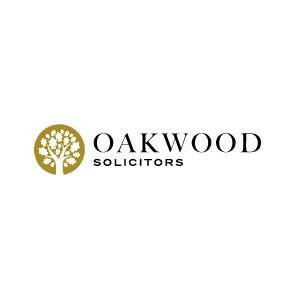Best Bankruptcy Lawyers in Leeds
Share your needs with us, get contacted by law firms.
Free. Takes 2 min.
List of the best lawyers in Leeds, United Kingdom
About Bankruptcy Law in Leeds, United Kingdom
Bankruptcy law in Leeds, like in the rest of the United Kingdom, is primarily governed by the Insolvency Act 1986 and the Enterprise Act 2002. These laws set out the procedures for declaring bankruptcy and its implications for individuals and businesses. When declared, bankruptcy commonly results in selling most of the debtor's assets to pay off their debts, but it also provides a fresh start for the indebted person, free from financial commitments.
Why You May Need a Lawyer
Hiring a lawyer specializing in bankruptcy can be beneficial in several ways. Firstly, the process of declaring bankruptcy involves complex legal procedures which can be difficult to understand and handle without professional assistance. Additionally, a bankruptcy lawyer can provide advice on whether bankruptcy is the best solution for your situation, or whether less drastic measures may be preferable. They can also help protect your rights and negotiate with your creditors.
Local Laws Overview
In Leeds, like in the rest of the UK, bankruptcy is available to both individuals and businesses who cannot pay their debts. Individuals may apply for a Debt Relief Order (DRO) or an Individual Voluntary Arrangement (IVA). Businesses on the other hand may file for administration, liquidation, or a Company Voluntary Arrangement (CVA). However, bankruptcy has serious implications including restrictions on obtaining credit, directorships, and loss of certain assets. Therefore, it's strongly advised to seek legal advice before proceeding.
Frequently Asked Questions
1. What is the process of filing bankruptcy?
The process involves filing a petition to the court along with detailed financial information. If the court declares you bankrupt, an Official Receiver is appointed to sell your assets and distribute the proceeds among your creditors.
2. How long does bankruptcy last?
Bankruptcy usually lasts for 12 months, after which any remaining debts are written off. However, the bankruptcy order remains on your financial record for six years.
3. Can all debts be included in bankruptcy?
No, some debts such as student loans, fines, and some other types of debt cannot be included in bankruptcy.
4. How does bankruptcy affect my credit rating?
Bankruptcy has a serious impact on your credit rating and will make it difficult for you to obtain credit for a number of years.
5. Can I keep any of my assets?
Some essential assets such as basic household goods and equipment necessary for your work or business are usually exempt from being sold.
Additional Resources
The Insolvency Service, a government body, provides detailed information and advice concerning bankruptcy. Additionally, Citizens Advice and National Debtline also offer free, confidential advice on managing debt and bankruptcy.
Next Steps
If you are considering bankruptcy, it is recommended to seek professional legal advice. A lawyer will help you understand its implications, guide you through the process, and help protect your rights. It's also beneficial to engage with resources such as the Insolvency Service, Citizens Advice and National Debtline to gain additional information and support.
Lawzana helps you find the best lawyers and law firms in Leeds through a curated and pre-screened list of qualified legal professionals. Our platform offers rankings and detailed profiles of attorneys and law firms, allowing you to compare based on practice areas, including Bankruptcy, experience, and client feedback.
Each profile includes a description of the firm's areas of practice, client reviews, team members and partners, year of establishment, spoken languages, office locations, contact information, social media presence, and any published articles or resources. Most firms on our platform speak English and are experienced in both local and international legal matters.
Get a quote from top-rated law firms in Leeds, United Kingdom — quickly, securely, and without unnecessary hassle.
Disclaimer:
The information provided on this page is for general informational purposes only and does not constitute legal advice. While we strive to ensure the accuracy and relevance of the content, legal information may change over time, and interpretations of the law can vary. You should always consult with a qualified legal professional for advice specific to your situation.
We disclaim all liability for actions taken or not taken based on the content of this page. If you believe any information is incorrect or outdated, please contact us, and we will review and update it where appropriate.










